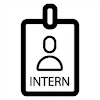Shrutika bhanushali
BLS LLB
Ibsar college of law Karjat
NEGOTIABLE INSTRUMENTS ACT 1881 , this act came into force on 1/03/1882
From the source , ENGLISH COMMON LAW , for the purpose of trade and commerce / merchantile purpose. Negotiable instruments which means transferrable and written document respectively, Negotiable instruments includes:
1. promissory note
2. Bill of exchange
3 cheque
CHEQUE :
As per negotiable instruments act, A cheque is bill of exchange drawn on a specified banker and not expressed to be payable otherwise than on demand .
Cheque bounce and cheque dishonoured both terms are usually same but the main difference between them I’d the grounds on which cheque is not honoured .
Resons for cheque to be Dishonoured :
1. Insufficient funds
2. Irregular signature
3. The difference between the ammount in words and number
4. Damages
5.Scribblings or overwriting on cheque
6. Account frozen
7. Payment is stopped/ counter mandate
8. Expired cheques
9. Death of issuer
Reasons for cheque bounce :
1. Insufficient funds / balance in the account.
2. Exceeds agreement
3. Signature mismatch.
THE REQSON WHY IS CHEQUE BOUNCE DIFFERENT THAN CHEQUE DISHONOURED
1.Cheque dishonoured is not legal offence it’s the mistake done by the parties involved.
2. Dishonoured is manual mistake
3.Cheque bounce is fraud
4.All return cheque are not liable for offence
5.Cheque bounce is more liable to be offence
6. Cheque dishonoured - signature is absent, cheque bounce - signature mismatch
7.Cheque bounce is fraud cause there’s wrong intentions.. mistakes done purposefully
8. Cheque dishonour is due to mistakes which does not include the wrong intentions.
PROCEDURE TO FOLLOW AFTER CHEQUE BOUNCE/ CHEQUE DISHONOURED.
1. A written notice is sent to drawer
2. The duration of notice is 30 days of receipt of cheque return memo
3. Notice period of 15 days is to be mentioned in notice
4. If the drawer commits to pay the complete amount within the notice period no legal action or no offense is presumed.
5. If the Drawer fails to pay the payee may choose to file a complaint in the competent court which is JMFC OR METROPOLITAN MAGISTRATE against drawer .
6. Such complaint shall be made within one month from the expiry of 15 days prescribed in the notice.
Some points to be considered or necessary to sue or prosecute the defaulting Drawer:
1. The Drawer can be sued only in the following conditions..
2. If the amount mentioned in the cheque is for the discharge of some debt or liability of the drawer towards the payee
3. If the Drawer fails to make payment of the dishonoured cheque within 15 days from date of receiving written notice ..
4. If the Drawer fails to make payment of the dishonoured cheque within 15 days from the date of receiving the written notice
5. If the cheque drawn by the Drawer is on the account maintained by or in the name of the Drawer himself.
6. If the cheque was dishonoured and returned due to ‘Insufficient funds’ in the Drawer’s account.













